AKC Miscellaneous Class
Dog breeds that are admitted to the AKC Miscellaneous Class, more or less go through an
evaluation period while they are working toward full AKC recognition.
During this review time it is determined if these "hopefuls" will be granted full registration status and become part of a standard group.
In the meantime, breeds accepted into this class are permitted to compete and earn titles in Companion Events and also some Performance Events, but it is not until they are admitted to the official Stud Book that they can compete in regular classes and start earning championship points.
Once a breed achieves official status, they are assigned to a breed
group based on factors such as their characteristics, temperament,
origins, purpose and history.
Factors that influence official recognition into an established AKC class, relate to the indication that
there is progressive development, activity and substantial interest in the breed. Also, that breeding activity
and awareness of the breed is expanding through the determined efforts of an established parent club.
The table below indicates the breeds currently in the Miscellaneous class of the AKC. This group represents but a small fraction of the total number of other
purebread dogs that exist throughout the world.
It is interesting to note that the origins of those presently listed come from far and wide, including the countries of Russia, Hungary, Italy, the United States and Scandinavia, to name a few.
AKC Miscellaneous Class - The Breeds
The working dog breeds are quite a diverse group both in physical appearance and in the abilities they bring to a given job.
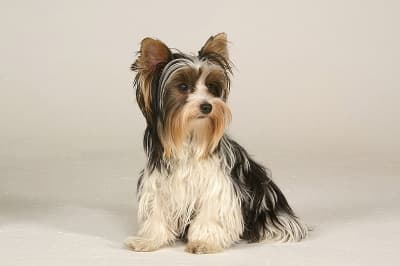 Biewer Terrier
Biewer Terrier Biewer Yorkshire Terrier a la Pom Pon. An unusual variation of the Yorkshire Terrier that is differentiated by its association with the recessive piebald gene.
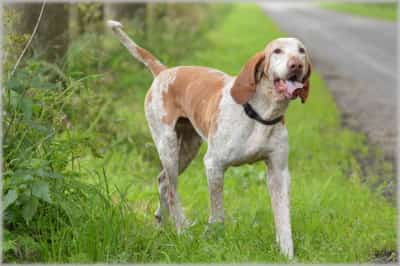 Bracco Italiano
Bracco ItalianoA hunter, pointer and retriever, this sporting breed native to Italy was once bred by the Medici family. The Bracco has a very ancient history dating to the 4th century B.C.
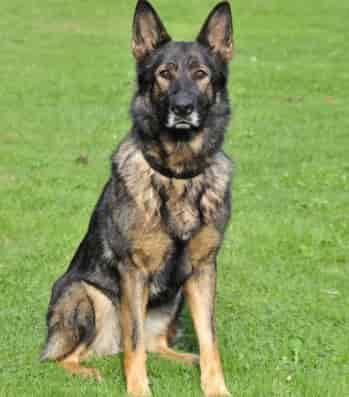 Dutch Shepherd
Athletic herding dog breed that does well in agility and field trialing. His work related jobs, in addition to being a competent herder, include guarding and search and rescue.
Dutch Shepherd
Athletic herding dog breed that does well in agility and field trialing. His work related jobs, in addition to being a competent herder, include guarding and search and rescue.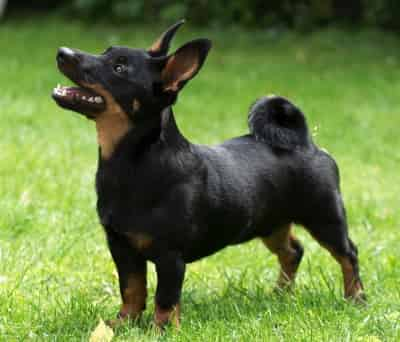 Lancashire Heeler
Lancashire HeelerA sturdy small dog with a history of herding and ratting. He is a rare breed considered endangered because of small gene pool.
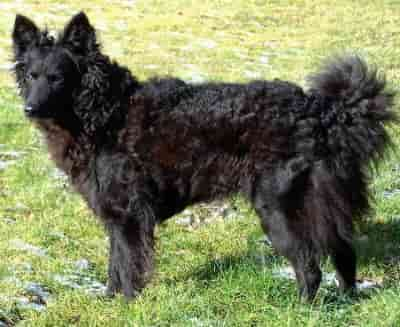 Mudi Dog Breed
Mudi Dog BreedA very rare working dog breed that also does well in a variety of dog sports including agility and flyball. Also adept at search and rescue.
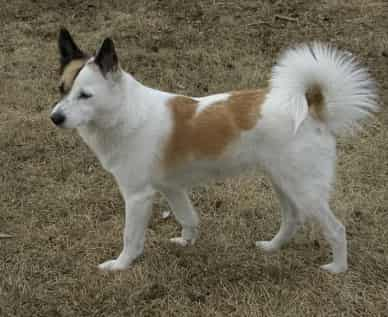 Norrbottenspets
NorrbottenspetsA small yet extremely rugged dog of the Spitz type designated to the hound group.
This energetic and playful dog needs plenty of exercise.
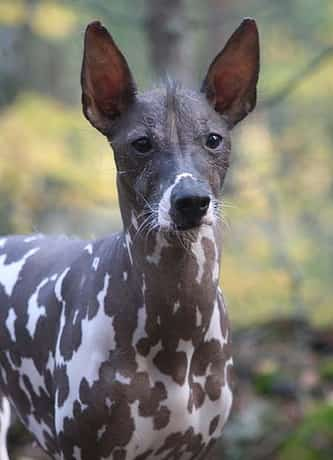 Peruvian Inca Orchid
Peruvian Inca OrchidA smart, agile sighthound of ancient origins, aka Moonflower dog and Inca Hairless dog. His likeness has been seen on Inca pottery since 750AD.
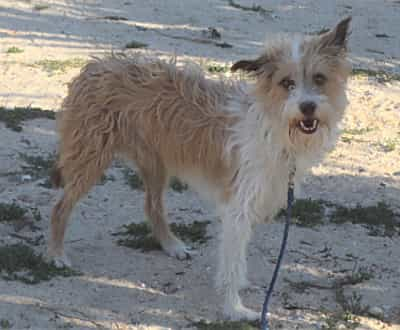 Portuguese Podengo
Portuguese PodengoSadly many Portugese Podengos are waiting to be rescued. This one, as of writing, was here in the Podengo-post Rescue with others.
Agile, playful and loving, the Podengo has been seen in artifacts since 700s BC.
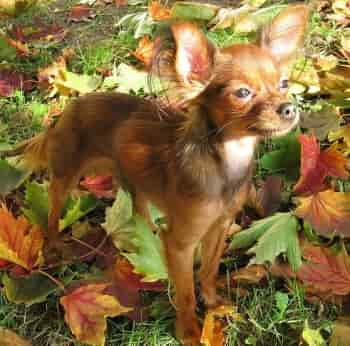 Russian Toy
Russian ToyThe Russian Toy, aka Russkiy Toy (Toy dog group), is a small, elegant, and lively companion dog breed seen with either a smooth or long coat. Derived from the English Toy Terrier during the 18th century and popular with the upper classes at that time.
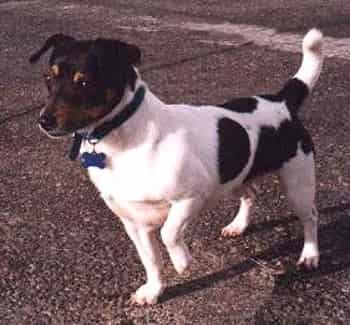 Teddy Roosevelt Terrier
Teddy Roosevelt TerrierA lively, friendly, affectionate terrier of small to medium size. Developed in America from dogs brought by immigrants and used to eradicate vermin. Originally associated with the Rat Terrier.
Share Your Knowledge and Pictures
Are you the proud owner of any of the dog breeds named above?
If you are, your "insider" information
would be of great value to others who are interested in one of these breeds!
We invite you to share your dog's pictures and his/her story as well as your knowledge about the breed you are familiar with.
You can put the spotlight on your dog by uploading his/her photos and telling their story here.
For inspiration, read some of the stories already submitted by other dog lovers.
More AKC Groups To Discover
- Sporting Dog Group - They love the great outdoors!
- Terrier Dog Group - Lively, Fun and Smart!
- Hounds - An interesting and talented dog group
- The Toy Dog Group - Diminutive Dogs With Big Personalities
- Non-Sporting Dog Group - Oh, I'll bet they'll play a game with you!
- Herding Dog Group - They love to round'em up!
- Rare Mastiff Dog Breeds
Photo Credits:
- Biewer Terrier https://commons.wikimedia.org/wiki/File:BiewerH%C3%BCndin.jpg License: http://creativecommons.org/licenses/by-sa/3.0
- Lancashire Heeler: https://www.flickr.com/photos/26794772@N04/6108430757 License: https://creativecommons.org/licenses/by-nc-sa/2.0
- Mudi: Vulpes at Dutch Wikipedia
- Norrbottenspets: https://commons.wikimedia.org/wiki/File:Spitz_De_Norrbotten.jpg License: https://creativecommons.org/licenses/by-sa/3.0
- Peruvian Inca Orchid: https://commons.wikimedia.org/wiki/File:Taru_metsa.jpg License: https://creativecommons.org/licenses/by/2.5


